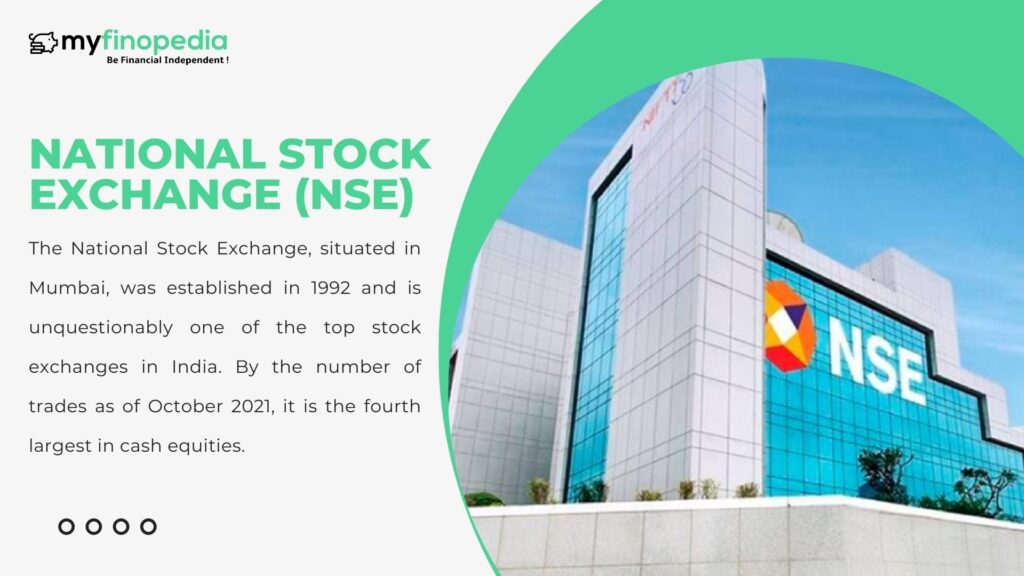Before anything else, we must understand what stock exchanges actually represent. A bourse, also known as a stock exchange or securities exchange, is a public market where stockbrokers and traders may buy and sell securities including stock shares, bonds, and other financial instruments. Stock exchanges could be able to handle the issuance and redemption of these securities and instruments as well as capital occasions such the payment of income and dividends. No shares are held by stock exchanges. As a marketplace, it serves as a forum for stock buyers and sellers to interact.
In this article, we will discuss a few significant stock exchanges from both India and throughout the world;-
National Stock Exchange (NSE):-
The National Stock Exchange, situated in Mumbai, was established in 1992 and is unquestionably one of the top stock exchanges in India. By the number of trades as of October 2021, it is the fourth largest in cash equities.
In order to increase transparency in the Indian equity markets, the NSE made sure that anybody who was qualified, experienced, and in possession of the necessary financial backing was permitted to trade. When it did so while operating under SEBI’s oversight, NSE blazed a path in this area by separating ownership and administration of the exchange.
A customer at a remote place may now view stock price information with the same ease as it was previously only accessible to a small number of individuals. Trade settlement was always completed on time once paper-based settlement was replaced with electronic depository-based accounts.
A strong risk management system was put in place as one of the most important reforms to guarantee that settlement guarantees would shield investors from broker failures. Life Insurance Corporation, State Bank of India, IFCI Limited, and SAIF II SE are just a few examples of the top financial institutions, banks, and insurance providers that own or have ownership interests in the NSE.
In August 2021, the NSE ranked ninth as the largest stock exchange in the world & total market capitalisation being more than US$3.4 trillion. According to Vaidyanathan (2016), the stock markets only contribute roughly 4% of the Indian economy’s GDP.
Market manipulation was taking place when Harshad Shantilal Mehta, together with other bankers and politicians, perpetrated the 1992 Indian stock market scam on the Bombay Stock Exchange. The stock market crashed as a result of the scam, which cost investors more than $10 million. The first reform was the establishment of the Indian National Stock Exchange. (NSE). The NSE’s online trading changed how equities are purchased and traded. The financial market grew across the country rather than remaining confined to Bombay.
The Nifty index includes the top 50 NSE stock exchange market participants. Additionally, it provides commodities, currency derivatives, equities and equity derivative instruments, clearing and settlement, and other services.
Utilizing cutting-edge technology also makes it possible for orders to be filled more quickly, increasing liquidity and ensuring correct pricing. The National Stock Exchange is a top venue for businesses getting ready to list on a significant exchange.






